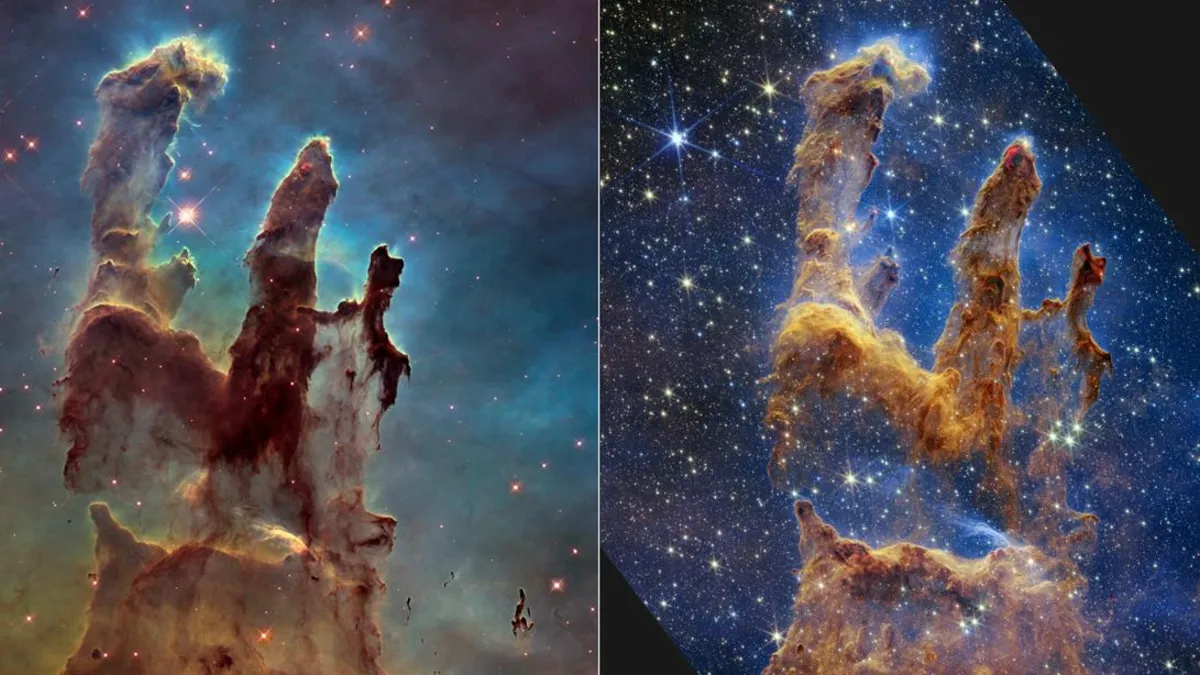
In a significant move that could alter the landscape of U.S. scientific research, the Trump administration has unveiled a 2026 budget proposal that threatens to cut NASA's science funding by nearly half. This proposed budget has sparked alarm among scientists, who warn that its implementation could lead to devastating consequences for ongoing and future scientific missions.
According to Neill Reid, a multi-mission project scientist at the Space Telescope Science Institute (STScI), if Congress approves the budget, it would cancel numerous in-development projects and operational missions, resulting in substantial layoffs within the scientific community. "NASA science is cut by a factor of two; astrophysics is cut by two-thirds," Reid stated during the recent 246th meeting of the American Astronomical Society (AAS) held in Anchorage, Alaska.
The looming question is how these proposed reductions in U.S. science funding will impact two of the most renowned astronomical instruments: the Hubble Space Telescope (HST) and the James Webb Space Telescope (JWST). While the budget does not outright cancel these missions, it suggests significant funding reductions that could hinder their operations.
The budget proposal indicates that the JWST, which received $187 million in funding for 2024, may see its budget slashed to $140 million by 2026. Similarly, Hubble's funding would decrease from $93.3 million in 2024 to $85 million in 2026. Both reductions could severely impact the operational capabilities of these telescopes.
Reid highlights that a 25% to 35% cut in operations for the $10 billion JWST is a real possibility. "The operations costs for JWST were established in 2011, and given the inflation and the proposed budget cuts, we are facing significant challenges," he explained. The demand for JWST's observations has surged since it began its mission in mid-2022, making continued support essential.
The Hubble Space Telescope has also been grappling with financial constraints, as its budget has remained stagnant for the past decade. Reid pointed out that inflation has effectively reduced Hubble's spending power by approximately 30%. "If we cut the budget further, we will be able to accomplish even less," he warned.
While discussions about Hubble's budget have been ongoing, including a potential 10% cut under the Biden administration, Reid emphasized that the telescope is currently in good health, with the potential to produce groundbreaking astrophysics into the early 2030s. However, proposed budget cuts could leave some of Hubble's instruments unsupported, necessitating reliance on the scientific community for self-support.
Another critical concern arising from Trump's 2026 budget request is the anticipated reduction in grant funding, which is vital for scientific research and operations. Without adequate funding, scientists may struggle to create the necessary operational instructions for telescopes like Hubble and JWST.
Reid noted that diminished funding would also limit resources for high-level scientific products, including data archived in MAST, which is essential for astronomers. "Less money across the board will affect the entire scientific community," he added.
In addition to operational and grant funding challenges, the budget cuts have already begun to affect publicity efforts for both Hubble and JWST. Effective communication of scientific achievements and timelines is crucial for public understanding and support. "Publicity allows taxpayers to see how their money is spent and the discoveries being made," Reid stated.
The outreach efforts, including educational materials for museums and planetariums, have also been jeopardized, as some grants are set to expire without renewal. This lack of funding could hinder the dissemination of knowledge and the cultivation of future scientists.
Reid emphasized the strong synergy between Hubble and JWST, with both telescopes playing pivotal roles in advancing our understanding of the universe. The Rocky World project, which combines the strengths of both telescopes, aims to explore the potential for life on planets orbiting M-dwarf stars. However, with potential funding cuts looming, the future of such projects remains uncertain.
Moreover, the proposed budget cuts threaten other NASA facilities, including the Chandra X-ray telescope, which faces a reduction from $70 million in 2024 to zero by 2026. Despite these challenges, Reid mentioned that the Habitable Worlds Observatory, a next-generation telescope initiative, is still included in the budget, albeit at a reduced level.
The implications of Trump's proposed budget cuts extend far beyond mere numbers; they threaten the very foundation of U.S. scientific leadership. Reid urges the scientific community to advocate for the importance of NASA and its contributions to science, emphasizing that "science makes America safer, stronger, and more prosperous." The call for support resonates strongly within the scientific community, as many scientists feel pressured to remain silent due to potential repercussions from their institutions.
As the debate continues, the potential impact on Hubble, JWST, and the broader scientific community remains a pressing concern. The fight for adequate funding and support for science is crucial to ensure that these powerful instruments continue to reveal the mysteries of our universe.